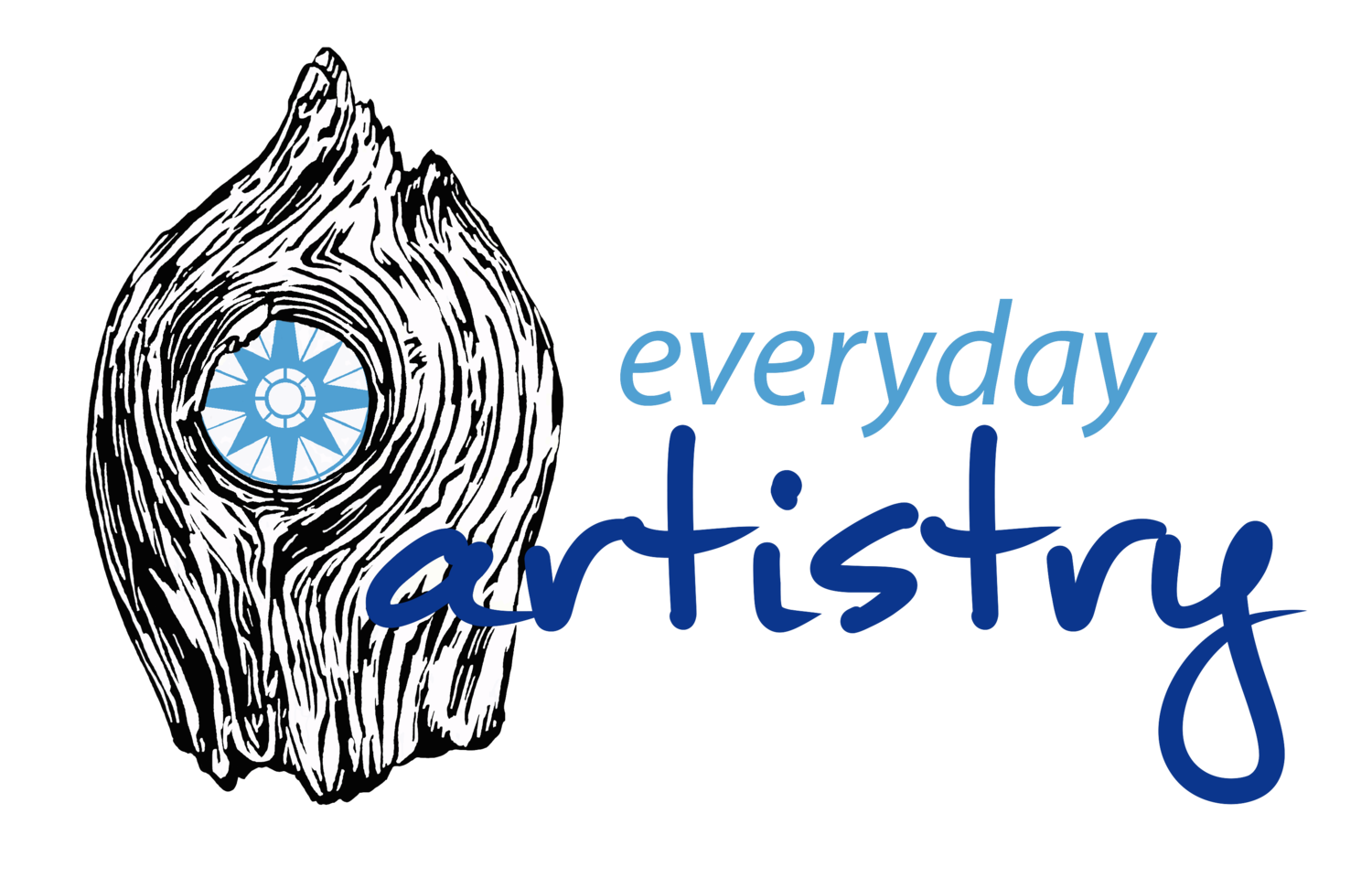So. You want to work on being more creative everyday. You want to establish a creative practice, you want to jump in on those projects you've been dreaming about. But you have no idea where to start. Should you take a class? Should you start a 30-day challenge? Should you ask your friend for help? Should you just start messing around and see what happens? The choices spin around in your mind and, day after day, you do nothing. It's too hard.Starting is the hardest part of any project or practice. And when there is no clear starting point, it's even harder. Here are some ideas on identifying what exactly is making it so hard to get started, and what to do about it.
Learning to Embrace Imperfection
Yesterday I came across Lisa Congdon's Doodling Manifesto. In it she talks about the importance of making a mark just for its own sake, and how every creative thing we do - no matter how messy or imperfect - is important. It gets us closer to who we are and to who we want to be. This struck me as a really important point. To be creative, we must learn to be imperfect. And not just imperfect: we must learn to make awful, terrible, ugly work just for the sake of making something. The more we make, the better we get.
Staying Organized: How I Increased my Creative Productivity
One of my biggest goals last year was to increase my regular creative output. I knew that I was capable of getting more done and I went on a mission to figure out how. Along the way I discovered that my organizational system played a huge role in keeping me on track. Finding something that works has made a world of difference in my mood, my levels of anxiety, and how much I can get done each week.
Creative Experiment: Halfway Through
Back in November I started working through Marion Deuchar's book Draw Paint Print Like the Great Artists, committing to doing every single exercise.
I called this project a creative experiment because I wasn't really sure what would happen. I hypothesized that working through every exercise in this book would yield creative returns, but I didn't know what those would look like. I hoped that it would help me to develop some creative discipline and that I would get better at creative play. You can read more about my expectations about the project here.
Make time for creativity: 4 ways to change the way you think
Since making a commitment to everyday creativity, I've learned a few things about why I don't seem to have enough time. I've learned that often what looks like "not enough time" is really a mental block tricking me into thinking I'm too busy. Sometimes I really am too busy, but most of the time, it's all in my head. Below I outline some of the mental blocks that have gotten in my way, and that may be holding you back, plus some ways that I've learned to dismantle, or at least work around, these blocks.
How I Found My Purpose
I've spent most of my life struggling with creativity. Even as a child, I often felt like it was an intangible entity, just out of my reach, floating above me while I was stuck on the ground. I thought that creativity was something elusive and inconsistent. I thought that it was avoiding me. It didn't help that I was a perfectionist and extremely self-critical. My expectations were astronomical and I was frequently overwhelmed by them.
How to make movement part of your creative tool kit
I really believe that our bodies know things that we might not consciously have access to and if we let them move, they will fill us in on their secrets. This isn't another New Years call to get yourself to a gym. This is just a gentle reminder that a moving body is a happy body - and movement can mean anything from stretching at your desk to dancing to scrubbing your baseboards. According to a study at Leiden University in the Netherlands, participants' performance on creative tasks went up when they were exercising regularly.
How to Prepare for Epiphanies: 5 Ways to Open up to Inspiration
Whether it's a massive shift in understanding or just a small flash of insight, epiphanies feel pretty good.These moments are rare, and that's what makes them magical, but do we have to wait around until something randomly bursts through the clouds? Or can we cultivate an environment where epiphanies are more likely? I think we can and lately I've been trying to figure out how. Here's what I've come up with so far.
What To Do When You Don't Feel Good Enough
For a lot of people I think this fear of not measuring up is what stops them from pursuing their creative interests. It's easy to look at what other people are doing and think "what could I possibly add to that?" The problem is that when we let those thoughts get in our way, we not only deprive ourselves of the joys of creating and sharing our work, but we also deprive our audience of experiencing it - whether that audience is a craft show or gallery customer, or your best friend admiring the card you sent her, or your husband appreciating how you redecorated the living room.
A Creative Experiment
In my constant effort to bring a little more creativity to my everyday life, I've decided to start a new project. I have come across dozens of books with exercises meant to get creativity flowing. I tend to read them quickly, anxious to get to the next thing, and I rarely do very many of the exercises, if any. However, after receiving Marion Deuchar's book Draw Paint Print as a birthday gift, I've decided to work my way through it and - gasp - do every single exercise.










